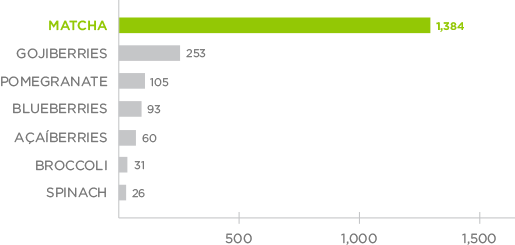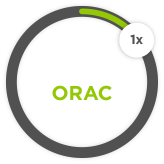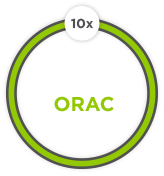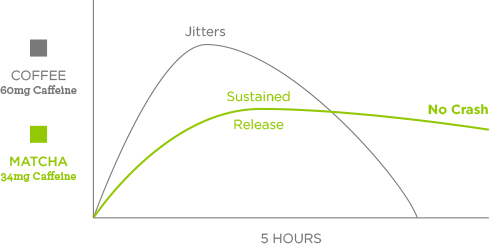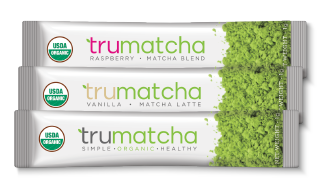Grades & Quality of Matcha
Calling matcha ceremonial grade isn’t just a fancy label to make you pay a premium - it is a label that matcha has to earn. TruMatcha provides you with high-quality ceremonial grade matcha because it’s the best kind of matcha you can have: originating in Japan (likely from Nishio or Uji), shade-grown (allowing for its intense green color), lightly sweet (a product of growing in shade and an indicator of L-theanine) and distinct in its texture (a silky powder that is incredibly fine.) So, the next time you see matcha and it has a strange yellow or brown tinge, keep in mind, it’s probably not ceremonial grade.

Powerful Antioxidants
The outstanding amount of antioxidants present in matcha is largely owed to catechins, a type of antioxidant, and matcha specifically is known for its incredibly high concentration of epigallocatechin gallate (EGCg), an antioxidant that has been lauded for being most effective at combating various kinds of cancers. Because matcha has so much of it (up to 100 times more than other teas on available) it is an effective aid in an anti-cancer lifestyle - and who wouldn’t like to stay cancer free?
